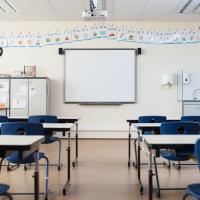Spain: New law on higher arts education

In June 2024, the law on higher arts education came into effect, a groundbreaking reform that is set to significantly reshape Spain’s educational landscape in the artistic field. This legislation holds importance for not only the vast number of students and educators directly involved but also for the broader artistic sector, which plays a vital role in the country's cultural and economic framework.
With over 140 000 students, 14 000 teachers, and a workforce of 690 000 individuals contributing to 3.3% of the nation's GDP, the artistic sector represents a substantial portion of Spain's educational and economic ecosystem. Despite its significance, the sector has long awaited a comprehensive regulatory framework to govern educational programmes in the arts.
One of the most noteworthy aspects of this legislation is its alignment with the European Higher Education Area (EHEA), marking a significant step towards integrating higher artistic education into the broader European university framework. The law is designed to bolster the internationalisation of Spanish artistic education by aligning it with European standards. This alignment will facilitate greater mobility for students and professionals within Europe, fostering collaboration and exchange with institutions across the continent.
Additionally, the law introduces measures to align professional artistic education with the National Catalogue of Professional Qualifications, integrating it into the new Vocational Education system. This recognition of professional artistic education acknowledges the value of artistic professions and ensures that students in these programmes receive recognition for their skills and competencies within the broader educational framework.
The introduction of a dual modality for training, which includes internships in companies, aims to provide students with practical experience and facilitate their transition into the workforce. The law emphasises the importance of recognising and accrediting competencies acquired by workers in the artistic sector, enhancing their employability and professional development opportunities.
Financial support is also addressed in the law, with provisions for scholarships for students in higher artistic education. This initiative aims to reduce financial barriers and ensure that talented individuals have access to quality artistic training, regardless of their economic background.
In addition, the law encourages research activity and artistic creation among teaching staff in public schools, recognising the vital role that educators play in shaping the artistic landscape of the country. The creation of new teaching positions, including professors and chair professors of higher education and professional education, reflects the government's commitment to strengthening the academic and professional development of the artistic workforce.
The introduction of new audio-visual education programmes reflects the evolving nature of the arts and the need to adapt educational provision to emerging trends and technologies. Additionally, the law grants greater autonomy to education institutions offering these programmes, allowing them to associate and create 'Campuses of the Arts,' further enriching the educational experience for students and fostering collaboration within the sector.
Overall, this new law represents a collaborative effort involving key stakeholders from the artistic sector, educational institutions, and government bodies. By addressing long-standing demands for regulation and modernising artistic education programmes, the law aims to enhance the quality, accessibility, and relevance of artistic education in Spain, thereby contributing to the cultural and economic development of the nation.
Source: Eurydice Unit Spain




